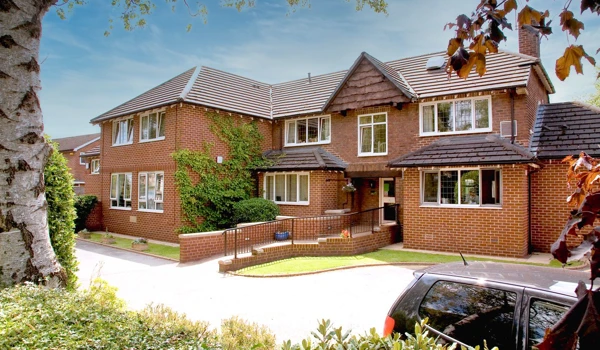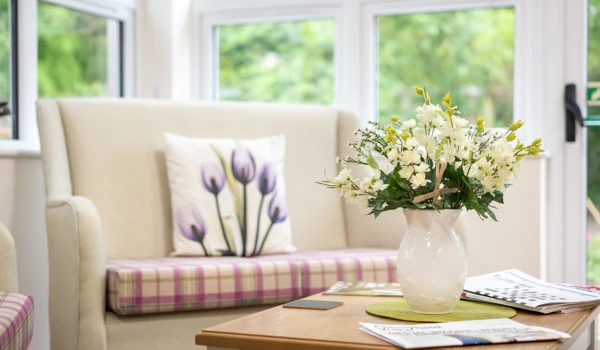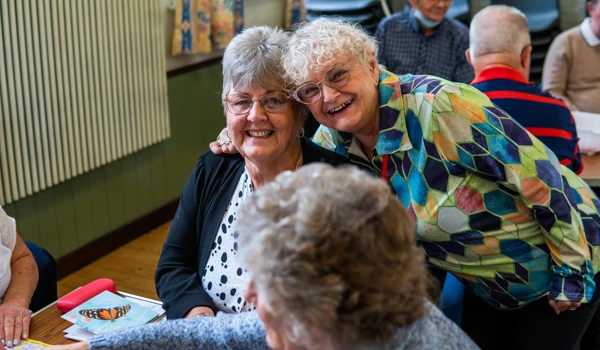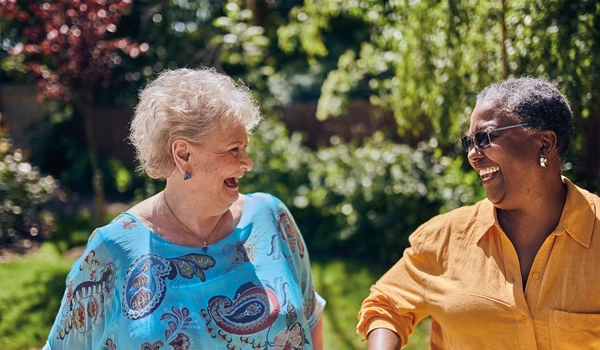What to look for when choosing a care home: questions to ask and how to prepare
Moving into a care home can be a worrying time for both the resident and family members, it’s one of the most difficult and important decisions you can make. There can often be a number of reasons why a care home might be a good option to consider such as increased care needs, because of a crisis, or to provide support for the resident and family.
Sometimes it can feel like there is a never a right time to move into a care home, but being prepared with all the information can help to make the move easier for both sides, as well as helping you to settle in faster and making your new home, feel like home.
Arranging a move into a care home can feel like a daunting process, but we’re here to help and have put together a checklist of questions to ask and some tips on what you can do to give you confidence you’ve made the right choice.
Supporting your loved one when looking for a care home
One of the most important things you can do is involving your loved one with the process. Starting the conversation about moving into a care home early, before there’s a crisis or emergency will help ease the pressure and reduce anxiety. Giving yourself enough time to listen to your loved one, respecting their wishes, and taking their concerns into account along the way will help to make the transition easier. Remember to be patient, and know that it might take many conservations over a period of time before they’re ready.
Finding the right home and care needs assessments
Once you’re ready, the first step is finding the right home. There are many things to consider here, if you are looking for a loved one you need to think about location and the level of their care needs. If you’re not sure how much care your loved one will need, you can have a care needs assessment from your local council which will help determine how well they cope with everyday activities and the type of care they will need.
At Abbeyfield we offer three types of care homes; residential care homes, dementia friendly care homes, and nursing homes. Below we describe the key features about the types of care we offer.

Residential Care Homes
Abbeyfield Residential Care Homes have been designed for older people with higher support needs to live comfortably with 24 hour staff to provide support and companionship. Key Features:
- 24 hour staffing
- Stimulating activities calendar
- Three nutritious meals daily
- Own bedroom with en-suite or separate bathroom
- Communal areas to socialise with other residents
- Personalised care plan

Dementia Friendly Care Homes
Our Dementia Friendly Care Homes have been designed to help support residents living with Alzheimer’s, dementia or other forms of memory loss. Our homes offer the same high quality support you’ll find in our care homes with extra support for those living with dementia. Key Features:
- All meals provided
- Own bedroom with en-suite or separate bathroom
- Communal areas to socialise with other residents
- 24 hour staff
- Personalised care plan
- Stimulating activities calendar

Nursing Homes
Our Nursing Homes provide the same high quality personal care and support that you would receive in any of our Residential Care Homes but with the added benefit of round the clock qualified nursing care. Key Features:
- 24 hour on-site qualified nursing staff
- Stimulating activities calendar
- Three nutritious meals a day
- Specialist furniture and equipment to meet your needs
- Personalised care plan
Visiting care homes
Now you’ve shortlisted some care homes to visit, you might want to bring a list of questions to ask whilst you’re there.
Some questions you might like to ask:
- When can residents have visitors?
- What will the care plan look like?
- Will the care home be suitable to meet your loved one’s needs for a long period of time?
- What activities are there for residents?
- Do you offer a trial stay?
- Do you allow pets?
- What will the room look like or what types of room are on offer? What furniture will the room have? What kinds of personal items can we bring from home?
- How much does it cost and what will the cost include?
- Does the monthly price increase yearly?
- Do you cater for special dietary requirements?
- Are meals cooked at the home?
- What hours do the staff work?
- Do you provide a laundry service?
- Is the cleaning of the resident room included in the price?
- Can family or friends stay overnight?
- Is there internet access?
- Are there en-suite facilities?
- Is the care home accessible?
- Does the care home have a garden?
- Are there other health professionals who come to the care home i.e GPs, nurses, dentists, opticians?
- Can residents cook/ wash for themselves if they wish?
- What security is there for residents?
Some other questions you might want to ask yourself when visiting homes:
- Can you imagine yourself or loved one living there?
- Does it feel homely?
- Does it feel safe?
- Does it feel friendly?
We have added these questions in a document which you might like to bring along on your visit, with some space to write some of your own questions, so you don’t forget once you get there.
Visiting the care homes gives you the chance familiarise yourself with the home, get to know the staff and for the staff to get to know your loved one, and see the facilities they offer at each home. You’ll also get a chance to see and speak to the residents, see what the rooms are like, ask what is included in the rooms and know what you’re allowed to bring with you.
You should ask if the home does a trial stay, as it’s a good way to know if the home is right for you and your loved one without committing.
Some care homes may offer respite care stays which can provide carers with a chance to have a break. This is also another option for trying out a home to see if it is suitable for your loved ones needs, without committing to long term residential care.
At Abbeyfield we have a number of care homes which offer respite care stays which include:
- 24/7 care support from our qualified and friendly staff
- Daily activities
- Nutritious meals served daily (dietary requirements can be catered for)
- Housekeeping and linen service

Search for your perfect Abbeyfield retirement home
Everyone is welcome at an Abbeyfield retirement home. Wherever you find us, you’ll find we’re warm, open and friendly. Abbeyfield is more than a retirement home, it’s a neighbourhood, a community, a family.
Next steps

Tips for settling into your retirement home
At Abbeyfield, we want new residents to feel at home as quickly as possible, so we’ve put together a few tips, as suggested by our residents, to help you settle in quickly.

Moving into a care home
Moving to a care home can be an emotional time but making plans early and getting the information and advice you need will help make any changes much easier and less stressful.

Difficult conversations in later life
Conversations about health, care, managing of finances and moving home are not everyday topics and lots of us don’t feel confident when bringing them up. However, it’s important to have these conversations so you can ensure that your loved ones are thinking about the future and know you are there to help.
